This article was co-authored by Michael Lewis, MD, MPH, MBA, FACPM, FACN. Michael D. Lewis, MD, MPH, MBA, FACPM, FACN, is an expert on nutritional interventions for brain health, particularly the prevention and rehabilitation of brain injury. In 2012 upon retiring as a Colonel after 31 years in the U.S. Army, he founded the nonprofit Brain Health Education and Research Institute. He is in private practice in Potomac, Maryland, and is the author of "When Brains Collide: What every athlete and parent should know about the prevention and treatment of concussions and head injuries." He is a graduate of the U.S. Military Academy at West Point and Tulane University School of Medicine. He completed post-graduate training at Walter Reed Army Medical Center, Johns Hopkins University, and Walter Reed Army Institute of Research. Dr. Lewis is board certified and a Fellow of the American College of Preventive Medicine and American College of Nutrition.
There are 19 references cited in this article, which can be found at the bottom of the page.
wikiHow marks an article as reader-approved once it receives enough positive feedback. In this case, 96% of readers who voted found the article helpful, earning it our reader-approved status.
This article has been viewed 132,888 times.
Staying fit is not just for your body. It is also important to keep a fit brain. Brain fitness is about keeping the mind sharp and preventing or battling cognitive disease. You have the ability to promote healthy brain development through brain fitness, exercise, social interaction, and protecting yourself. No matter when you start, whether it's early or late in life, following some simple practices can aid in mental health.
Steps
Challenging Yourself Mentally
-
1Learn a new skill. Research has shown that learning a new skill can improve brain functions. New skills not only improve memory, but they help the portion of the brain that ensures protection of the memories. Furthermore, new skills, particularly the more complex skills, engage the brain comprehensively instead of in small portions.[1]
- Juggle. A small study has shown that juggling can improve connections and white matter in the brain.[2]
- Woodworking is a great way to keep the brain engaged. It requires precise measurements and concentration.
- Digital photography has been shown to have a very significant impact on mental health, perhaps because of how difficult and complex the task can be.
-
2Play brain games. Brain games such as Sudoku and crossword puzzles positively have been shown to improve connections in the brain. They also affect short-term memory. Try to keep your mind as active as possible.[3]
- Starting brain games, and being mentally active in general, early in life has shown to be more beneficial than attempting to start later in life.
- Once the brain games stop being complex, it no longer has the same brain health impact it once did. If the game is easy, find a new game.
Advertisement -
3Practice memorization. Work with short goals first. Try memorizing increasingly more difficult lists.[4] Whether it’s all the states in the U.S., or all the bones in the human body, attempting to memorize complex lists helps the brain significantly. Try memorizing one of the following:
- Shoot for as many digits in the number pi as you can.
- Lock down the ingredients in a complicated recipe.
- Find a favorite speech and commit it to memory.
-
4Read often. Reading an array of material – books, periodicals, poetry – engages and exercises the brain. Learning new words is similar to learning a new language, which has been shown to improve brain function and expand brain activity in multiple sections.[5]
- Reading stimulates the brain and slows the onset of Alzheimer’s and dementia.
- Most people have difficulty focusing on reading for just five straight minutes without distraction.
- Look for articles that pertain to what you currently find interesting in the world.
- If you have a favorite author, look up one of their books on a popular website and then check recommended authors. You may find a new favorite.
Engaging in Social Activities
-
1Stay in touch with friends and family. Some research has shown that people who maintain close personal relationships and emotional support from friends have a better chance of fighting dementia. Even general social connectivity has been shown to help the brain.[6]
- Call a loved one once a day.
- Send a hand-written letter to a grandparent.
- Try a new social media interaction with a younger relative.
-
2Volunteer your time. Aside from lowering stress, research has shown that volunteering in a social setting can increase your mental ability. Volunteering involves attention, control, and in some cases, a bit of memory. All of these practices promote a healthier brain.[7] A few possible options follow:
- Cook at a food bank. Helping with the recipes could engage mathematical portions of your brain.
- Try tutoring to stimulate thinking skills.[8]
- Read to children at a library.
-
3Expand your social circle. Try to make new friends in locations you currently don't have any. Engaging in social activities has been shown to improve brain health, but doing so in many different ways could ramp up the benefits. Join more groups. Make new friends. However you can, engage more people for a greater amount of time. Simply put, higher levels of social interaction relate to lower risks of poor mental health.
- Sit with coworkers at lunch. Choose people you don't speak to often.
- Try taking a new course or class. Look to local community colleges or a lifelong learning center.
- Chat up a random stranger. This can be done anywhere (e.g. grocery store, hardware store, restaurant, in line at the bank).
Preventing Brain Injuries
-
1Get physical exercise most days. Studies have shown that walking 45 minutes a day created positive brain activity. This brain activity helps the neurons of the brain survive. Scientists believe it’s related to the influx of additional oxygen during the exercise. Further studies have shown executive level skills like planning and scheduling were also improved by the walking program. Additionally, the actual size of the brain, particularly the frontal lobe where cognition occurs, increases with exercise.[9]
- Add some weight to your walks. Some research has shown that a small amount of weight has significant positive effect on brain health. Put on ankle weights before the next walk for a mental health boost.[10]
- Work in the garden.
- Leisurely swim a few laps.
- Clean the house from top to bottom.
- Rake some leaves.
-
2Add mental demands to the exercise. Studies have shown that exercise that requires some mental steps has greater boosts in mental health. Something that requires coordination like an aerobics class engages both the muscles and the mind. A team-building obstacle course provides an outlet for not just the physical activity, but also strategy. The key is that simple physical exercise has less of an impact on mental health than exercise including mental demands.[11]
- Try counting your steps during a run.
- Add up the total weight lifted when doing strength exercises (e.g. 3 reps of 20lbs would be 60lbs).
- Sign up for an instructor led class that will challenge you to memorize a routine.
-
3Practice balance exercises. Improving coordination and balance is a sure-fire way to avoid potential head injuries related to poor mental health and degraded mental cognition. By practicing something like Tai Chi, the muscles used to balance are strengthened and stabilized, and there is less chance of falling or head injury.[12]
- Doing some squats will strengthen various balance muscles in your legs.
- Try balancing on one leg. You’ll wobble at first, but with enough practice, you’ll begin to stabilize.
-
4Wear protective headwear. Head trauma has been connected to an increased chance of Alzheimer’s, and recent research in athletics has linked it to chronic traumatic encephalopathy (CTE). CTE is a degenerative disease caused by multiple head injuries, including concussions.[13] Whenever engaging in physical activities that provide safety measures, always use them properly.
- Wear a helmet whenever riding a bike or skateboard.
- Always buckle your seatbelt when available.
- Avoid contact whenever possible in contact sports.
-
5Get regular checkups. Dementia-related illnesses are diagnosed via an assortment of tests like brain imaging and blood-work. Some drugs, or particular doses, may have a negative affect that exacerbates poor mental health. Research has shown early diagnosis of symptoms related to mental impairment can help reverse potential cognitive impairment.[14]
- One study has shown that 80% of people with Alzheimer’s also have cardiovascular issues. Take preventative measures by improving your cardiovascular system, lowering blood pressure, and lowering cholesterol, and you’ll improve your chances against Alzheimer’s.[15]
- If you are forgetting more often, having trouble with instructions, words are getting jumbled, or you're losing things often, you may need to see your doctor to see if these issues are related to Alzheimer’s.[16]
Adopting Healthy Habits
-
1Choose healthy foods. Choosing more healthy options can help your brain as well as your body.[17] Attempt to minimize the foods that have higher concentrations of saturated fats, trans fats, and partially hydrogenated vegetable oils. Try, instead, to eat foods like grains and leafy vegetables, both good sources of vitamin B, that have been shown to lessen the risk of mental disease.
- Reducing the number of calories you eat has actually been shown to minimize mental issues during old age. [18]
- Including recommended amounts of fruit in your diet also helps lessen the potential of cognitive issues in old age.
-
2Limit harmful substances. Drinking, smoking, and drug abuse have been shown to negatively impact mental health. Drinking, smoking, and drug abuse have been linked to dementia, brain deterioration, and a variety of disorders, respectively. Multiple studies have displayed that stopping smoking or drug abuse, and minimizing alcoholic intake, increases the odds of living a healthy mental life as you age.
- Minimal alcoholic intake - two or less per day is the recommendation - has also been linked to improved blood pressure, a supplementary benefit that helps mental health in old age.[19]
- Combining lower alcohol intake with other good behaviors like exercise and not smoking increases the likelihood of positive cognitive ability when older.[20]
- Smoking negatively affects the cortex, which influences memory and language skills.[21]
- Drug abuse has been linked to everything from dementia and amnesia to psychosis and anxiety. Non-prescription drugs should be avoided at all costs.[22]
-
3Get enough sleep. Studies have shown that restless or interrupted sleep is tied to the increase in brain proteins that are associated with Alzheimer’s. Other studies have shown that healthy, sound sleep helps fight off Alzheimer’s related genes. Currently, it’s not known if poor sleep causes Alzheimer’s symptoms, or if Alzheimer’s leads to poor sleep, but the connection between the two is significant.[23]
- Sleep well by taking a hot shower before you go to bed. This will help regulate body temperature and make it better for sleeping.
- Try multiple positions when you fall asleep. Some may help you get to sleep faster.
Expert Q&A
-
QuestionDoes autonomic dysfunction cause motor neuron disease?
 Chris M. Matsko, MDDr. Chris M. Matsko is a retired physician based in Pittsburgh, Pennsylvania. With over 25 years of medical research experience, Dr. Matsko was awarded the Pittsburgh Cornell University Leadership Award for Excellence. He holds a BS in Nutritional Science from Cornell University and an MD from the Temple University School of Medicine in 2007. Dr. Matsko earned a Research Writing Certification from the American Medical Writers Association (AMWA) in 2016 and a Medical Writing & Editing Certification from the University of Chicago in 2017.
Chris M. Matsko, MDDr. Chris M. Matsko is a retired physician based in Pittsburgh, Pennsylvania. With over 25 years of medical research experience, Dr. Matsko was awarded the Pittsburgh Cornell University Leadership Award for Excellence. He holds a BS in Nutritional Science from Cornell University and an MD from the Temple University School of Medicine in 2007. Dr. Matsko earned a Research Writing Certification from the American Medical Writers Association (AMWA) in 2016 and a Medical Writing & Editing Certification from the University of Chicago in 2017.
Family Medicine Physician Autonomic dysfunction is caused by an impairment in neurotransmitter activity. Traditionally, upper or lower motor neuron disease are classified as different neurological problems. Upper motor neuron disease is characterized by weakness, slowness, hyperreflexia, and spasticity. Lower motor neuron disease is characterized by weakness, atrophy, and fasciculations
Autonomic dysfunction is caused by an impairment in neurotransmitter activity. Traditionally, upper or lower motor neuron disease are classified as different neurological problems. Upper motor neuron disease is characterized by weakness, slowness, hyperreflexia, and spasticity. Lower motor neuron disease is characterized by weakness, atrophy, and fasciculations -
QuestionIs alcohol bad for brain health?
 Michael Lewis, MD, MPH, MBA, FACPM, FACNMichael D. Lewis, MD, MPH, MBA, FACPM, FACN, is an expert on nutritional interventions for brain health, particularly the prevention and rehabilitation of brain injury. In 2012 upon retiring as a Colonel after 31 years in the U.S. Army, he founded the nonprofit Brain Health Education and Research Institute. He is in private practice in Potomac, Maryland, and is the author of "When Brains Collide: What every athlete and parent should know about the prevention and treatment of concussions and head injuries." He is a graduate of the U.S. Military Academy at West Point and Tulane University School of Medicine. He completed post-graduate training at Walter Reed Army Medical Center, Johns Hopkins University, and Walter Reed Army Institute of Research. Dr. Lewis is board certified and a Fellow of the American College of Preventive Medicine and American College of Nutrition.
Michael Lewis, MD, MPH, MBA, FACPM, FACNMichael D. Lewis, MD, MPH, MBA, FACPM, FACN, is an expert on nutritional interventions for brain health, particularly the prevention and rehabilitation of brain injury. In 2012 upon retiring as a Colonel after 31 years in the U.S. Army, he founded the nonprofit Brain Health Education and Research Institute. He is in private practice in Potomac, Maryland, and is the author of "When Brains Collide: What every athlete and parent should know about the prevention and treatment of concussions and head injuries." He is a graduate of the U.S. Military Academy at West Point and Tulane University School of Medicine. He completed post-graduate training at Walter Reed Army Medical Center, Johns Hopkins University, and Walter Reed Army Institute of Research. Dr. Lewis is board certified and a Fellow of the American College of Preventive Medicine and American College of Nutrition.
Board Certified Brain Health Physician If you've had a brain injury, you're better off not having any alcohol at all. But for most people, drinking is a part of our society. If you're going to partake in alcohol, it's important to use moderation, and avoid mixing it with sugary sodas or fruit juices. However, very limited alcohol, like an occasional glass of wine, can actually be quite healthy for you.
If you've had a brain injury, you're better off not having any alcohol at all. But for most people, drinking is a part of our society. If you're going to partake in alcohol, it's important to use moderation, and avoid mixing it with sugary sodas or fruit juices. However, very limited alcohol, like an occasional glass of wine, can actually be quite healthy for you.
References
- ↑ http://www.npr.org/sections/health-shots/2014/05/05/309006780/learning-a-new-skill-works-best-to-keep-your-brain-sharp
- ↑ http://abcnews.go.com/Health/Technology/juggling-improve-brain/story?id=116656
- ↑ https://www.mcgill.ca/neuro/article/research/keeping-brains-fit-longer
- ↑ http://www.helpguide.org/articles/alzheimers-dementia/alzheimers-and-dementia-prevention.htm
- ↑ https://www.sciencedaily.com/releases/2012/11/121125103947.htm
- ↑ Michael Lewis, MD, MPH, MBA, FACPM, FACN. Board Certified Brain Health Physician. Expert Interview. 18 February 2021.
- ↑ https://stlukes.com.au/health-and-wellness/preventative-health/volunteer-to-boost-brain-plasticity
- ↑ http://www.health.harvard.edu/blog/volunteering-may-be-good-for-body-and-mind-201306266428
- ↑ https://www.apa.org/monitor/2014/01/inbrief
- ↑ https://www.sydney.edu.au/news-opinion/news/2020/02/11/strength-training-can-help-protect-the-brain-from-degeneration.html
- ↑ https://socialdance.stanford.edu/syllabi/smarter.htm
- ↑ http://www.helpguide.org/articles/alzheimers-dementia/alzheimers-and-dementia-prevention.htm
- ↑ https://www.alz.org/alzheimers-dementia/what-is-dementia/related_conditions/traumatic-brain-injury
- ↑ https://www.cdc.gov/aging/healthybrain/issue-maps/early-detection.html
- ↑ http://www.alz.org/research/science/alzheimers_prevention_and_risk.asp
- ↑ https://alzheimers.org.nz/about-dementia/what-is-dementia/early-warning-signs/
- ↑ Michael Lewis, MD, MPH, MBA, FACPM, FACN. Board Certified Brain Health Physician. Expert Interview. 18 February 2021.
- ↑ http://www.health.harvard.edu/mind-and-mood/12-ways-to-keep-your-brain-young
- ↑ http://www.health.harvard.edu/mind-and-mood/12-ways-to-keep-your-brain-young
- ↑ https://www.alzheimers.org.uk/about-dementia/types-dementia/alcohol-related-dementia
- ↑ https://apps.who.int/iris/bitstream/handle/10665/128041/WHO_NMH_PND_CIC_TKS_14.1_eng.pdf
- ↑ http://www.ncbi.nlm.nih.gov/books/NBK64178/
- ↑ https://www.apa.org/monitor/2014/01/inbrief




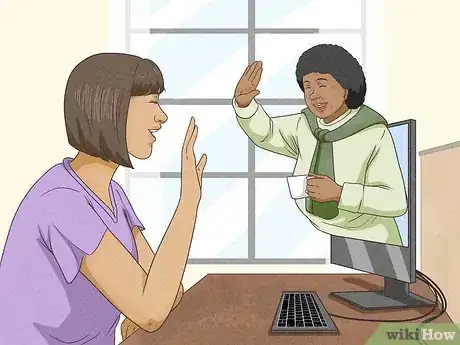



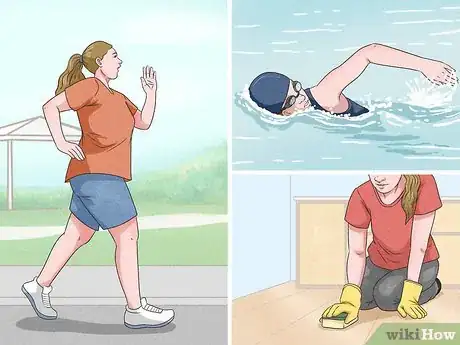
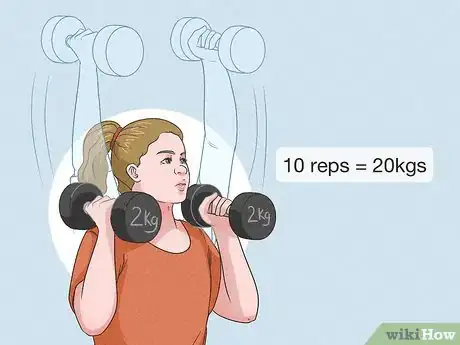
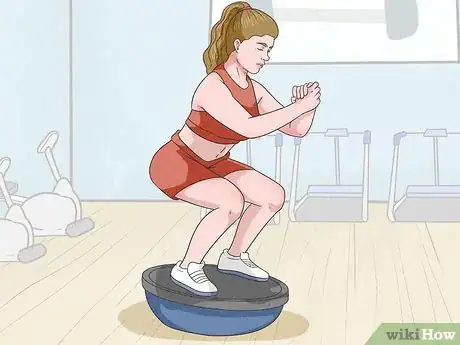


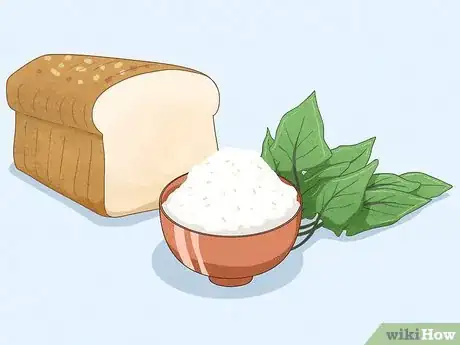
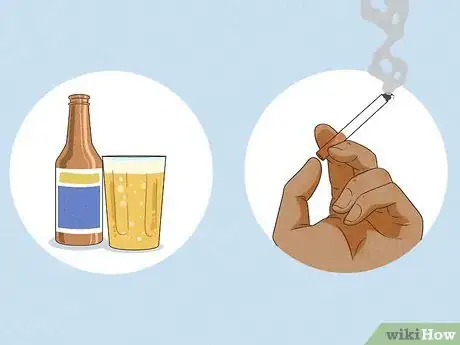
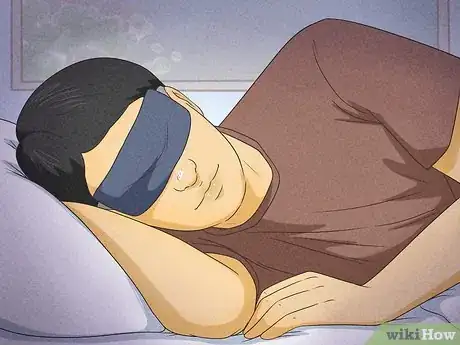












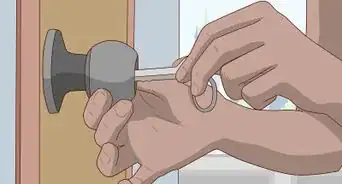


















































Medical Disclaimer
The content of this article is not intended to be a substitute for professional medical advice, examination, diagnosis, or treatment. You should always contact your doctor or other qualified healthcare professional before starting, changing, or stopping any kind of health treatment.
Read More...